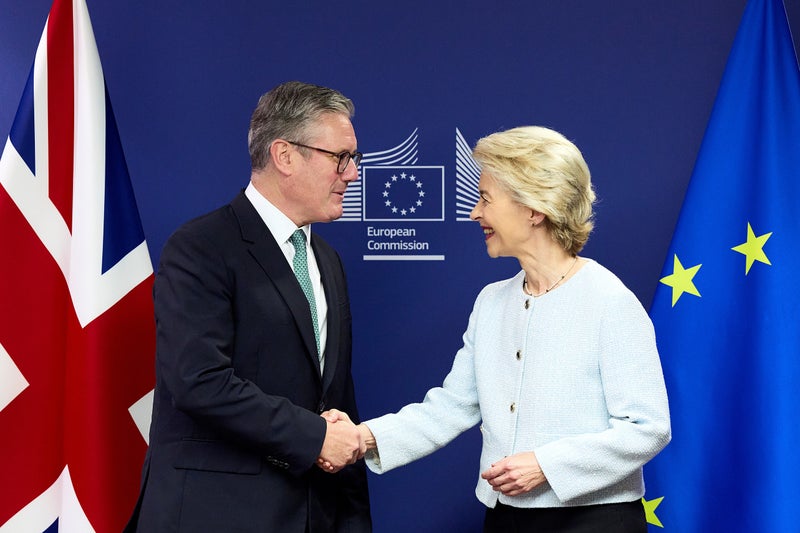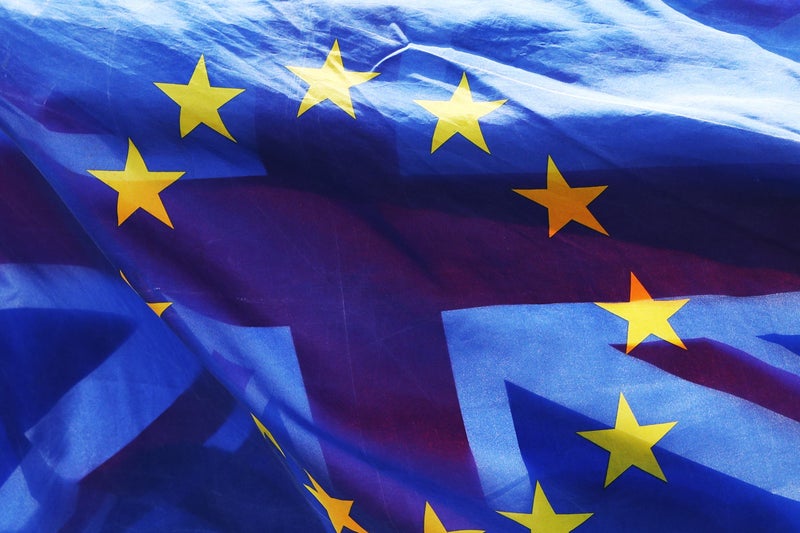What exactly could the UK-EU reset look like?
What exactly could the UK-EU reset look like?
Share:
In its 2024 election manifesto, the Labour Party promised to "reset the relationship" between the UK and the EU. But seven months since Sir Keir Starmer won the general election, are we any closer to finding out what a post-Brexit relationship with the bloc will actually look like?. The prime minister is under increasing pressure to delicately balance his risky EU reset with keeping US President Donald Trump on side.
Follow live: Politics latest. Please use Chrome browser for a more accessible video player. At a meeting with all 27 EU bloc leaders and the NATO chief in Brussels - the first British prime minister to attend such a meeting since Brexit - Sir Keir's overall aim was to "tighten and strengthen" the UK-EU relationship, according to our political editor Beth Rigby. The prime minister largely focused on security and defence cooperation in Brussels. However, he is facing growing calls to engage with Europe more economically to achieve his government's growth goals and to help businesses.
But to secure a reset, EU leaders will want things in return - mainly to maintain access to UK fisheries, enhance security cooperation, and improve mobility into the UK. Here we examine what a renewed UK-EU relationship could look like, including the contentious issues of a youth mobility scheme and a new customs union. What has Labour said?. Labour's election-winning manifesto promised to reset ties with Europe after years of a strained relationship under the Tories, but it is still not clear exactly what this will look like in practice.
Sir Keir has been adamant there will be no return to the single market, customs union or freedom of movement and he has previously ruled out a youth mobility deal. Instead, the manifesto pledged to "negotiate a veterinary agreement to prevent unnecessary border checks and help tackle the cost of food". However, details of this have remained vague. When pressed on this by Sky News' Trevor Phillips on Sunday, Home Secretary Yvette Cooper said the UK wants stronger trading relationships all over the world but said a customs union is one of the government's "red lines".
What is a customs union?. So, what precisely is it that the government is adamant we will not return to?. A customs union is an agreement between countries to apply the same tariffs to goods imported into their territory from the rest of the world, and apply no tariffs internally. It is not the same as the single market, which goes further - by also allowing for the free movement of people, services, and capital within the bloc.
The EU Customs Union has been in place since 1968, but since the UK left the bloc, trade barriers have been erected which has added to costs for companies moving goods between the UK and Europe. Negotiating a new customs union would be tricky as the UK is wary of not having free control over its tariffs. The government also wants to avoid similar problems Turkey has with its customs union with the EU, such as having little say on the terms of any trade agreements with third countries and being bound to grant trade concessions.
What about the Pan-Euro-Mediterranean Convention?. Last month, EU trade commissioner Maros Sefcovic said Brussels "could consider" allowing the UK into the Pan-Euro-Mediterranean Convention (PEM) as part of a "reset" in discussions. Launched in 2012, the PEM aims to make it easier for 25 countries, mostly in Europe and north Africa, to trade with each other through common rules by signing free trade agreements to reduce or lift tariffs on each other's goods.
The idea has been met favourably by the government, with Chancellor Rachel Reeves telling Trevor Phillips last month that the government is "absolutely happy" to look at the proposals. Business Secretary Jonathan Reynolds also described Mr Sefcovic's comments as "incredibly positive", adding: "We can improve the terms of trade with the EU in a way which doesn't revisit customs unions or single markets or the arguments of Brexit, and we can do that whilst pursuing closer trade links around the world.".
William Bain, head of trade policy at the British Chamber of Commerce (BCC), told Sky News that new PEM rules are due to apply in 2026, which could make the transition easier. BCC research indicates that joining the PEM "would have majority support among UK businesses who trade in the European region". What is the youth mobility scheme?. The European Commission has also proposed opening negotiations with the UK on an agreement to facilitate youth mobility between the EU and the UK.
The scheme would allow both UK and EU citizens aged between 18 and 30 years old to stay for up to four years in a country of their choosing. The commission has argued that such a scheme would benefit people studying, training, working or travelling, and it has gained support from a number of Labour MPs, including senior MP Stella Creasy. 👉Listen to Politics At Jack And Sam's on your podcast app👈.






















